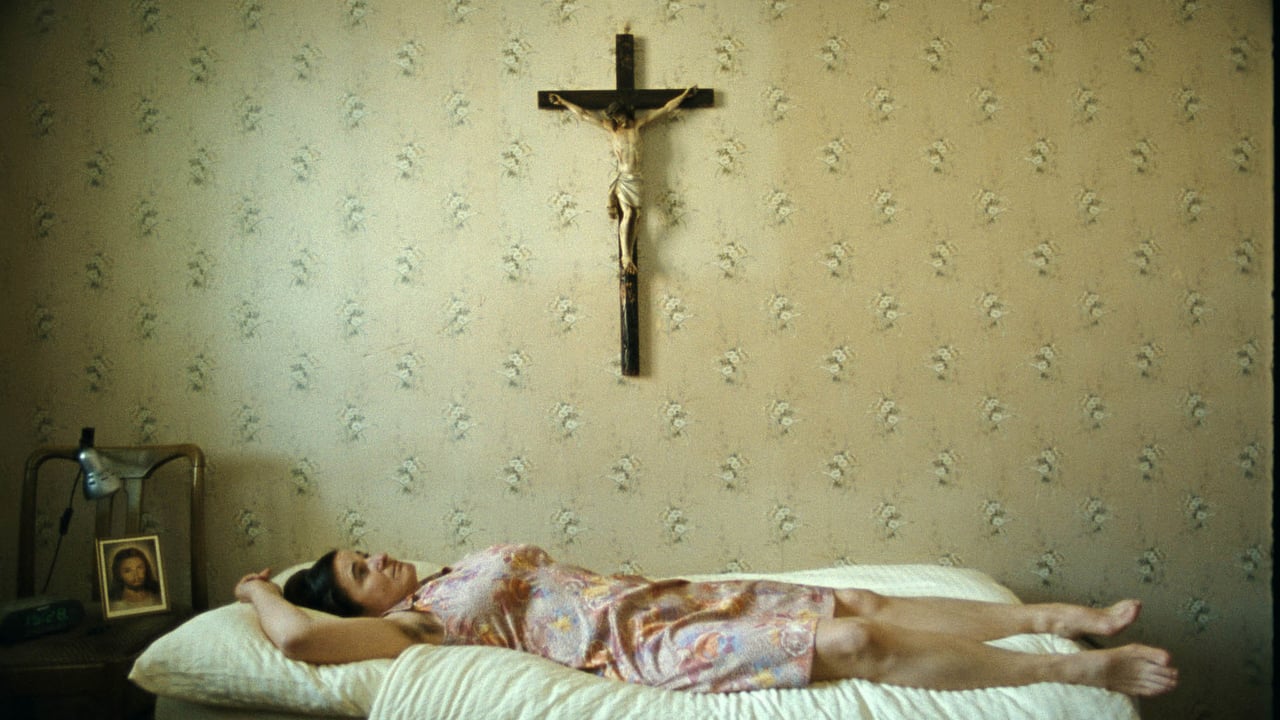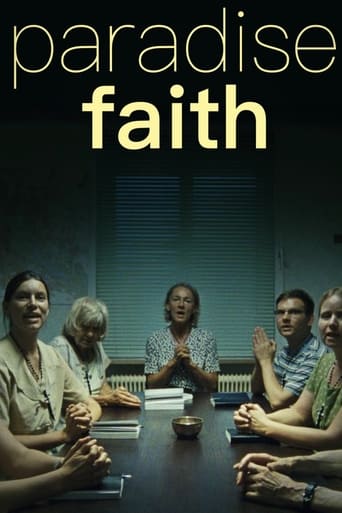

It's not just a boring movie. It is a repetitive film, but all his cinema is repetitive. He does not know when the sequence has ended and continues.The problem, for me is that the director himself does not know what he wants to tell and so it is difficult to tell.The actors are sometimes seen acting, but there are times when you do not see what happens and so it is difficult to see how they act.The photograph says nothing. Apart from being a cold movie, but not by the light, it is a distant movie. He does not tell us anything.The director, lead, for my taste, without being clear what he wants to tell is difficult to do. It repeats the sequences, lengthens them, bores and only knows how to make plane sequence, although it does not count anything and although the camera this badly put, that usually is normal.It's another film by this director, so special
... View MoreThis film goes right in the heart of it all in Austria and for that matter in Western Europe as well. Islam is coming and Christans are afraid! That is the real truth! Struggle of Anna Maria and Nabil is a struggle of the worlds, different continents and cultures. But it has compatibility to it. Struggle between two great religions brings them together in love-hate relationship! Who will win? People in the park! They are the only the once who understand: There is no God and only thru sexual satisfaction you can achieve happiness before inevitable end!It is also a story of foreigners coming to Austria for a better life and they do not find any! Austrians are terrified from them but can not start ovens in Aushwitz or Dachau yet. That little bit of power USA and Russia still have, prevents them from doing that.Please try to obtain this film and watch it!
... View MoreI saw this film as part of the Rotterdam film festival 2013. After having seen Paradise: Love in the Ghent film festival 2012, I was of course prepared for having to watch not-so-easy digestible scenes. In other words, some scenes you wished you were somewhere else, but still you feel the need to observe what's going on because you won't miss a tiny thread of what the film makers want to get across. Maybe I was prepared too much, surprisingly finding myself less bothered in my spectator role than with predecessor Paradise: Love. Especially the masturbation scene with a crucifix for which we were warned by several professional reviewers, progressed nicely under the blankets and proved suggestive rather than shown in the flesh.More problematic for me to watch were her house calls while attempting to convert people to the catholic faith, or at least to interest them for Saint Mary. She carries a nearly life-size statue of Saint Mary along during her missionary journey. Cold calling as she practices is unsympathetic by definition. It may come to no surprise that she meets resistance with most of the people, particularly in the poor neighborhoods with many immigrants she has chosen as her target. But it perfectly fits in her belief that all of Austria should become catholic, as propagated by a small ultra-religious group that counts her as a devoted member. We see a few scenes with group meetings, but these insights were kept relatively short, confined to relevant background information, no more no less.The film starts on the last working day before her holiday. We see her making preparations for the self-assigned task of spreading her belief. This is apparently her main occupation during her holidays, being happy that she now has all day for making house calls. Not an encouraging journey, however. She has to cope with indifference at best, more often than not with skepticism and hostility, and meets loaded questions to challenge the position she advocates when visiting people (for instance) living together out of wedlock. It is not always easy to explain the rules imposed by the catholic church, and one can always ask who has the right to determine what entails a mortal sin. Yet she seems unshakable in her belief. As a bonus we see vivid discussions from time to time, on average not with either side being really right or wrong.The story gets more and more interesting when her husband decides that it is time to reunite. Though it is not made very explicit, I assume they never formally divorced. They apparently lived apart a number of years for reasons not revealed to us. The husband is a follower of Allah, a fact that raises questions how these two got married in the first place. The husband is crippled, and totally dependent on a wheelchair. Of course, her belief considers his health situation as a sort of punishment, better said a divine retribution with a specific purpose. Her first action after his homecoming is to arrange a separate sleeping place for him, in spite of his stance that sleeping together is a matter of course when people are married. Their mutual relationship deteriorates further as the story progresses. Differences in beliefs are a core element in their disputes, in combination with her firm position to avoid all forms of sex and intimacy with her husband.These two story lines intertwine throughout the film, both with headstrong beliefs about right and wrong as fundamental driving forces. Difficult moments for us, viewers, are for example repeated self-flagellation scenes, when she considers herself to have underperformed in her missionary activities, or when she suspects any mark of infamy however small in our eyes. All of this fully justifies the title of this film. Though religion was lost on me many years ago, even I have to admit that the situation becomes more and more interesting alongside subsequent developments.All in all, a compelling performance of the main characters, especially Anna Maria who we are allowed to follow from close-by. The extent of religious belief we see is very extreme. We may recognize it from books and movies, mostly set in times long past or in areas far away. Such a strong and persistent devotion is rarely seen in western countries, but I can very well imagine that more or less underground movements like this exist even here. Fanatics are not time bound, and exist within many religions. We read and hear about it at present, leading to breakups between people, or at worst even physical abuse and destructive activities. This movie lets us re-consider our own position in this, letting us think why we have dropped the religious education we previously received. Yet I have no answer to those questions. The only constructive thing I could do was giving a maximum score for the audience award when leaving the theater. Not everyone seems to agree, since it ranked far below the top: 42th (out of 176) with score 4.016 (out of 5) from 703 votes.
... View MoreWe have a loser at the focus of the story and gets humiliated in a variety of different situations. These themselves were constructed to create the classical gritty art-house feel. It feels as if made my a film school graduate who got the assignment to create a collage of gritty situations related to faith. This resulted in a storyline which had no credibility. I'm surprised that this film has received awards at festivals. It was one of the most unoriginal films I've seen. This is not only related to the story but also to lighting and general feel. On a positive note the encounters she had with "real" people was well observed but were just three excellent short films. This film reminded me in many places of films made by Peter Mullen and British Social Realism which is repeated over and over again.
... View More